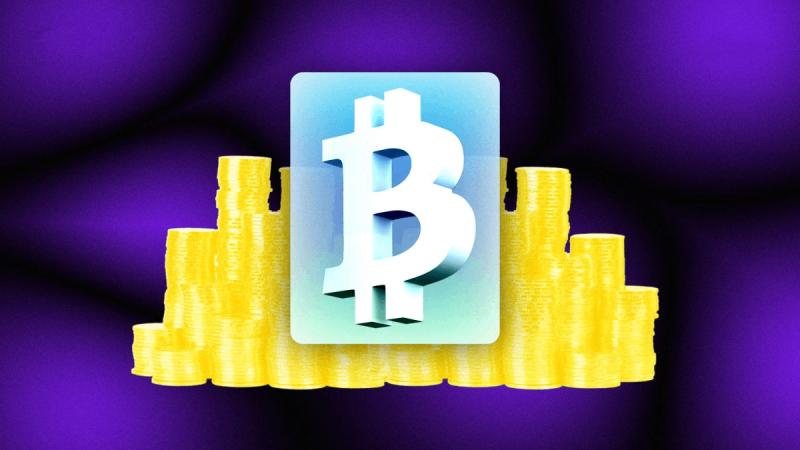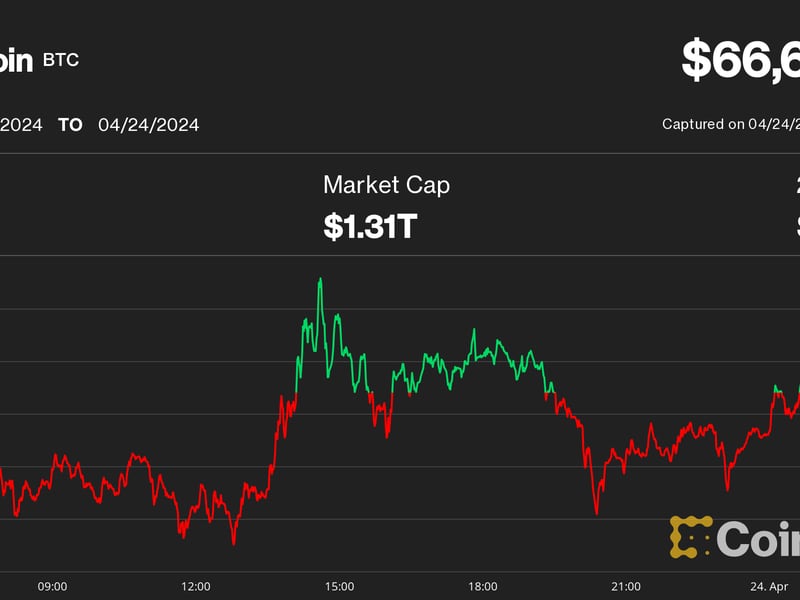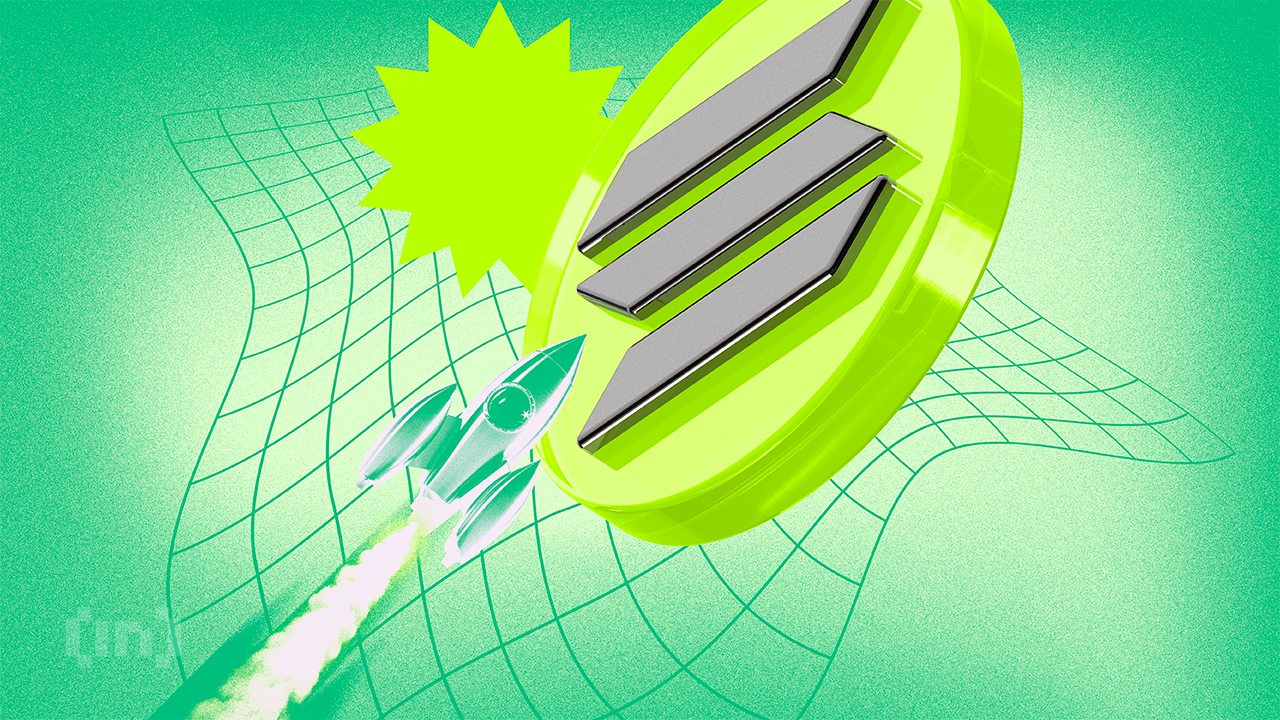The Block • Apr 24, 24
US spot bitcoin ETFs see third consecutive day of net inflows
Grayscale’s GBTC recorded $66.88 million in net outflows, while funds from BlackRock, Ark Invest and Bitwise recorded net inflows.
Read more



Polymath can be traded on a decentralized exchange (DEX) using your Coinbase web3 wallet.
Polymath is only supported on a DEX. Additional fees will apply. Coinbase is not responsible for activity or assets traded on a DEX. Learn more.
POLY is an ERC-20 token that aims to facilitate the creation and management of security tokens on the Polymath platform. By creating a compliance-focused standard (ST-20) to issue and manage security tokens, Polymath seeks to tokenize traditional and new asset classes.
Polymath (POLY) is a unique cryptocurrency that provides the technology to create, issue, and manage security tokens on the blockchain. It aims to streamline outdated processes and introduce new financial instruments by addressing the challenges associated with public infrastructure, such as identity, compliance, confidentiality, governance, and settlement. Polymath has developed Polymesh, a blockchain designed for regulated assets, to meet the regulatory requirements of capital markets. POLY is the utility token that powers the Polymath Token Studio on Ethereum and is used by issuers for creating and managing security tokens on the platform.
Polymath operates by providing a platform for the creation, issuance, and management of security tokens. It has developed a unified standard for security tokens on Ethereum, known as ERC 1400, and has deployed over 200 tokens using its Ethereum-based solution. Polymath's Polymesh blockchain is designed to meet the regulatory requirements of capital markets, addressing challenges with public infrastructure around identity, compliance, confidentiality, and governance. The platform also offers non-technical users intuitive tools to access the chain's functionality, aiming to enhance capital markets.
Polymath seeks to address the barriers to institutional adoption of security tokens, a market with significant potential. Its Polymesh blockchain is designed specifically for security tokens, providing the crucial elements that issuers, investors, institutions, and regulators require. This includes identity, compliance, confidentiality, and governance. Polymath's platform and the applications built on it aim to offer a different approach compared to general-purpose blockchains when it comes to creating and managing digital securities. The platform's deep functionality combined with user-friendly tools aims to enhance capital markets.
Polymath was founded with the vision of making it easy for anyone to launch a security token. The idea was born out of the challenges faced while trying to tokenize a private fund, which revealed the technical and legal complexities of launching securities on the blockchain. Since its inception, Polymath has grown to include team members and contributors worldwide, with a growing list of over 50 global service providers. After the platform launch, POLY was created to interact with the platform, with almost 100,000 wallets holding POLY and 240,000,000 tokens distributed during launch. The max supply of POLY is 1 billion, with a certain amount currently in circulation.
Polymath allows issuers to create customized security tokens that comply with global regulations. It uses built-in compliance tools and works closely with regulatory bodies to ensure that the tokens meet all legal requirements. Polymath's platform also allows for a high degree of customization, enabling issuers to create tokens that meet their specific needs. Polymath is open to both accredited and non-accredited participants, increasing the accessibility for both groups. The tokenization process involves creating a Polymath account, undergoing a Know-Your-Customer (KYC) verification process, and then using the platform's user interface to design and issue the tokens. Polymath provides tools for managing participant accreditation and performing legal checks to ensure compliance with securities regulations.
By leveraging blockchain technology, POLY strives to increase efficiency and reduce errors in the creation, issuance, and management of securities, which may contribute to cost efficiencies. It also aims to enhance liquidity of traditionally illiquid, non-fractionable assets like real estate, thereby democratizing participation and enabling asset variety. POLY seeks to improve compliance by programming compliance rules directly into each token, reducing the risk of error and making it easier to manage complex compliance requirements. It aims to increase transparency by providing a single source of truth for all parties, reducing disputes around record keeping. Lastly, POLY enables the creation of new product offerings such as fractionalized real estate and dynamic ETFs.
Polymath's role in creating compliant security tokens involves providing a standardized framework for issuing these tokens. This is achieved through the use of the ERC-1400 standard, which introduces specific regulations for fundamental compliance mechanisms, management of documents, and controls over security tokens. Polymath provides a platform, known as the Polymath Token Studio, for the issuance and management of these tokens. With the introduction of the Polymesh blockchain, Polymath seeks to enhance the compliance and confidentiality of security tokens, aiming for institutional adoption through regulatory frameworks.
POLY strives to bring traditional financial securities into the blockchain space, thereby contributing to the evolution of DeFi. It does this by providing a platform for creating and managing security tokens, which are digital assets subject to securities regulations. This is a step towards integrating real-world assets and blockchain technology, expanding the scope of DeFi. And, POLY's focus on regulatory compliance is a crucial aspect of its contribution to DeFi, as it seeks to bridge the gap between traditional financial regulations and the decentralized nature of blockchain technology.
Polymath is recognized in the security tokenization landscape due to its approach to tokenization and its features. Polymath seeks to simplify the issuance and management of security tokens by providing a user-friendly interface, which may help businesses navigate the regulatory landscape more efficiently. It provides a framework that adheres to existing securities laws, aiming to facilitate the creation and trading of compliant security tokens. This approach may foster trust and confidence within the industry. Polymath aims to improve accessibility and participation in the market by enabling fractional ownership of assets. It implements measures like multi-factor authentication, encryption, and data storage to handle user information and assets. Polymath aims to support interoperability with other blockchain platforms, which may allow a wider range of tokens and assets to be traded on the platform.
Businesses can utilize Polymath's POLY token to simplify the process of creating, issuing, and managing digital securities on the blockchain. Polymath's platform is designed to automate many of the traditionally laborious and manual processes involved in bringing securities to public and private markets. This automation aims to optimize resource utilization and reduce room for error. The platform also allows for the tokenization of traditionally illiquid assets like private placements, real estate, or fine art, potentially expanding the accessibility of these assets. And, Polymath's technology facilitates the entire tokenization journey, from security token creation to the management of assets that may be exchanged in secondary markets. This makes it a functional tool for businesses looking to harness the power of blockchain for efficient token creation and management.
Polymath (POLY) strives to address the challenges in the traditional securities issuance process by utilizing blockchain technology to simplify and safeguard the creation and management of security tokens. These tokens are digital representations of traditional securities like stocks or bonds. POLY's platform includes compliance tools, working in tandem with regulatory bodies to ensure adherence to global regulations. This allows issuers to concentrate on creating their security tokens without the need to focus on legal details. The platform provides customization features, which may assist issuers in creating tokens that align with their requirements. Polymath is open to both accredited and non-accredited investors, which could potentially expand the investor base. The platform integrates market makers and other liquidity providers, aiming to address potential issues with token liquidity. In an effort to mitigate fraudulent activity, Polymath implements background checks, due diligence, and technologies such as biometric authentication and AI-powered fraud detection algorithms.
POLY is designed to incentivize participants in the token ecosystem. It introduces the concept of hyperproductive tokens, which allows token holders to become validators and receive non-monetary incentives. This design intends to secure, coordinate, and align the Polygon ecosystem while providing potential opportunities to POLY holders. POLY contributes to the Polygon ecosystem, such as ecosystem security through a decentralized pool of Proof-of-Stake validators, scalability to support growth, and ecosystem support through a sustainable, in-protocol mechanism. POLY offers utility and incentives revolving around validators, aligning and incentivizing them to perform useful work. Validators are required to stake POLY to join the validator set, and once they stake POLY, they can establish incentive streams: protocol incentives, transaction processing incentives, and additional incentives.
Polymath strives to enhance transparency in tokenization by implementing a regulatory framework that includes stringent Know Your Customer (KYC) and Anti-Money Laundering (AML) procedures. These measures aim to align with regulatory requirements and improve security within the blockchain space. Polymath also addresses the compliance requirements specific to security tokens, assisting issuers in navigating complex regulatory landscapes and ensuring that security tokens adhere to relevant securities laws. In addition, Polymath's technology aims to facilitate the entire tokenization journey, from security token creation to the management of assets that may trade on secondary markets. This process is designed with the intention of automating the enforcement of compliance rules, which could help issuers navigate complex compliance procedures while potentially reducing the need for manual processes.
Earn free crypto after making your first purchase. Terms apply.

Sum of median estimated savings and rewards earned, per user in 2021 across multiple Coinbase programs (excluding sweepstakes). This amount includes fee waivers from Coinbase One (excluding the subscription cost), rewards from Coinbase Card, and staking rewards.
Market cap
$96.9M
Volume (24h)
$9,915.17
Circulating supply
925.0M POLY
Typical hold time
Not enough data
Popularity
#468
All time high
$1.66
Price change (1h)
+3.28%
Price change (24h)
+1.45%
Price change (7d)
+23.27%
The Block • Apr 24, 24
US spot bitcoin ETFs see third consecutive day of net inflows
Grayscale’s GBTC recorded $66.88 million in net outflows, while funds from BlackRock, Ark Invest and Bitwise recorded net inflows.
Read more

CoinDesk • Apr 24, 24
Bitcoin, Ether Coil as Crypto Traders in Limbo After Halving
Investors are still gauging macroeconomic factors, one observer said.
Read more

The Block • Apr 24, 24
Sam Altman’s Worldcoin meets Malaysian leaders as crypto project aims to bolster government ties
The high-profile proof of humanity project is increasing efforts to bolster government ties while promoting the idea Worldcoin cares about privacy.
Read more

Decrypt • Apr 23, 24
Why Are Bitcoin Rune Names So Weird? There's a Method to the Madness
Despite quirky and long labels, there are already several thousand etchings in the wake of the Bitcoin halving.
Read more

BeInCrypto • Apr 23, 24
Solana (SOL) Price Breakout: 25% Rally Likely Due to This Reason
Solana's price is breaking out of an ascending triangle pattern which suggests a 25% rally is likely.The post Solana (SOL) Price Breakout: 25% Rally Likely Due to This Reason appeared first on BeInCrypto.
Read more

CoinDesk • Apr 23, 24
Institutional Digital Assets: The Future of Finance Is Here
Tokenization initiatives from BlackRock, JP Morgan and others presage a revolution in payments, wealth management and other key activities of Wall Street, says author Annelise Osborne.
Read more

Assets with the biggest change in unique page views on coinbase.com over the past 24 hours.
A selection of cryptocurrencies in the top 50 by market cap.
A selection of the most recently added cryptocurrencies.
Of all the assets on Coinbase, these 12 are the closest to Polymath in market cap.
Here is a selection of spot and futures markets that people watch
A selection of other relevant cryptocurrencies
72 unique individuals are talking about Polymath and it is ranked #1,504 in most mentions and activity from collected posts. In the last 24 hours, across all social media platforms, Polymath has an average sentiment score of 3.2 out of 5. Finally, Polymath is becoming more newsworthy, with 0 news articles published about Polymath. This is a 0% increase in news volume compared to yesterday.
On Twitter, people are mostly bullish about Polymath. There were 95.65% of tweets with bullish sentiment compared to 0% of tweets with a bearish sentiment about Polymath. 4.35% of tweets were neutral about Polymath. These sentiments are based on 23 tweets.
On Reddit, Polymath was mentioned in 1 Reddit posts and there were 3 comments about Polymath. On average, there were more upvotes compared to downvotes on Reddit posts and more upvotes compared to downvotes on Reddit comments.
Powered by LunarCrush
Contributors
72 people
Volume rank
#1,504
Average Sentiment
3.2 out of 5
Tweet Count
23 people
Sentiment
95.65%
Bullish
4.35%
Neutral
0%
Bearish
Conversion Table
POLY/CAD (Canadian Dollar)
CA$0.14
POLY/GBP (British Pound)
£0.0842
POLY/JPY (Japanese Yen)
¥16.23
POLY/BRL (Real)
R$0.54
POLY/EUR (Euro)
€0.0980
POLY/NGN (Nigerian Naira)
NGN 130.18
POLY/KRW (South Korean Won)
₩143.65
Learn how we collect your information by visiting our Privacy Policy.
The price of Polymath has increased by 3.28% in the last hour and increased by 1.45% in the past 24 hours. Polymath’s price has also risen by 23.27% in the past week. The current price is $0.10 per POLY with a 24-hour trading volume of $9.92K. Currently, Polymath is valued at 93.68% below its all time high of $1.66. This all-time high was the highest price paid for Polymath since its launch.
The current circulating supply of Polymath is 924,998,413 POLY which means that Polymath has as total market cap of 924,998,413.
We update our Polymath to USD currency in real-time. Get the live price of Polymath on Coinbase.
The current market cap of Polymath is $96.92M. A high market cap implies that the asset is highly valued by the market.
The all-time high of Polymath is $1.66. This all-time high is highest price paid for Polymath since it was launched.
Over the last 24 hours, the trading volume of Polymath is $9.92K.
Assets that have a similar market cap to Polymath include 0x0.ai, Stratis [Old], USDJ, and many others. To see a full list, see our comparable market cap assets.
The current circulating supply of Polymath is 925 million.
Polymath ranks 94 among tradable assets on Coinbase. Popularity is currently based on relative market cap.
Currently, 98% of Coinbase users are buying Polymath. In other words, 98% of Coinbase customers have increased their net position in Polymath over the past 24 hours through trading.
Yes, Polymath is currently available on Coinbase web3 wallet. For more detailed instructions, check out our helpful how to buy Polymath guide.
Navigate the world of Ethereum Name Service (ENS) profiles. Connect, learn, and engage with the web3 community on profile.coinbase.com. Check out some of the most popular ENS profiles below.
Certain content has been prepared by third parties not affiliated with Coinbase Inc. or any of its affiliates and Coinbase is not responsible for such content. Coinbase is not liable for any errors or delays in content, or for any actions taken in reliance on any content. Information is provided for informational purposes only and is not investment advice. This is not a recommendation to buy or sell a particular digital asset or to employ a particular investment strategy. Coinbase makes no representation on the accuracy, suitability, or validity of any information provided or for a particular asset. Prices shown are for illustrative purposes only. Actual cryptocurrency prices and associated stats may vary. Data presented may reflect assets traded on Coinbase’s exchange and select other cryptocurrency exchanges.